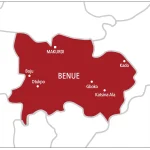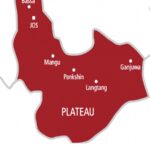Despite growing resistance from governors of the Peoples Democratic Party (PDP), former Vice President Atiku Abubakar is pressing ahead with efforts to build a broad-based political coalition aimed at unseating President Bola Tinubu in the 2027 general elections.
In a statement posted on his verified X (formerly Twitter) account on Wednesday, Atiku revealed that he had held separate meetings with two delegations—one from the PDP in Nasarawa State and another comprising national opinion leaders—to brief them on the progress of what he described as a “pan-Nigerian coalition” to reclaim the country.
“Yesterday, I met with a delegation of two groups, during which I briefed them about the status of the pan-Nigerian coalition that I am building in conjunction with other leaders and stakeholders across political divides and regions,” Atiku said.
“Indeed, the coalition train has left the station and will have multiple stops to bring on board Nigerians of all shades.”
He described the evolving coalition as a movement “powered by Nigerians desirous of reclaiming and rebuilding their country from across the nooks and crannies,” and emphasized that the effort is inclusive, cutting across regions, ideologies, and party lines.
Atiku’s open defiance of internal resistance signals a widening rift within the PDP, whose governors have recently expressed skepticism—and in some cases, outright disapproval—of the former vice president’s coalition push.
Some party leaders fear the move could undermine the PDP’s structure and its prospects ahead of 2027.
ALSO READ: Edo: More troubles for PDP as Dan Orbih donates parallel secretariat
But Atiku appears undeterred.
His determination to lead a national coalition aligns with his post-2023 positioning, where he emerged as one of the most vocal critics of the Tinubu administration.
He has also become a regular presence at opposition strategy meetings and has led efforts to rally disenchanted groups across Nigeria’s political spectrum.
The first delegation he met with was led by Alhaji Jibrin Sabo Keana from the Nasarawa PDP—a state where the party recently lost its gubernatorial appeal to the APC.
The second group comprised national opinion leaders led by Hon. Yusuf Sheriff Banki, a former federal lawmaker and key figure in past political realignments.
Atiku’s coalition-building comes at a time when Nigeria’s opposition is grappling with fragmentation.
The PDP remains embroiled in internal disputes, with FCT Minister Nyesom Wike openly at odds with party leadership, while the Labour Party is locked in a leadership crisis between factions loyal to Julius Abure and those aligned with the Nigeria Labour Congress and its 2023 presidential candidate, Peter Obi.
Against this backdrop, analysts say Atiku is positioning himself as the architect of a “third force”—one that leverages shared dissatisfaction across party lines and unites Nigerians under a new opposition banner.
Political observers also suggest the move could attract support from elements within the Labour Party, the New Nigeria Peoples Party (NNPP), and even disgruntled APC members.
However, some PDP governors remain cautious.
They argue that the party should first resolve its internal divisions before entering broader coalitions that might dilute its identity or force it into unfavourable power-sharing arrangements.
Atiku’s strategy is not without precedent. In 2014, he played a major role in the merger that birthed the All Progressives Congress (APC), which eventually unseated the PDP at the federal level in 2015.
His current coalition ambition appears to mirror that blueprint—a united opposition front against a dominant ruling party.
Still, analysts note that the road to 2027 remains uncertain.
Tinubu retains the advantage of incumbency and a solid APC base.
However, rising economic discontent and internal power struggles within the ruling party may provide an opening for a unified opposition—if it can hold together.
For Atiku, it’s a high-stakes gamble that could either redefine Nigeria’s political landscape or further fragment the opposition if consensus proves elusive.
“The coalition train has left the station,” he declared.
But whether it arrives at victory in 2027 will depend on how many Nigerians—and political heavyweights—it can pick up along the way.
WATCH TOP VIDEOS FROM NIGERIAN TRIBUNE TV
- Relationship Hangout: Public vs Private Proposals – Which Truly Wins in Love?
- “No” Is a Complete Sentence: Why You Should Stop Feeling Guilty
- Relationship Hangout: Friendship Talk 2025 – How to Be a Good Friend & Big Questions on Friendship
- Police Overpower Armed Robbers in Ibadan After Fierce Struggle






